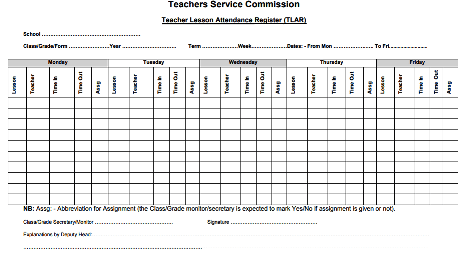2021-2025 KNUT Collective Bargaining Agreement (CBA)

The Kenya National Union of Teachers, KNUT, has presented the 2021-2025 Collective Bargaining Agreement (CBA) proposals to TSC. This comes days after TSC presented the 2021-2026 teachers’ salary increase proposals to the Salaries and Remuneration Commission, SRC.
KNUT has responded angrily, to the Commission’s move, and wants due process to be followed in coming up with the new CBA for teachers.
KNUT PROPOSALS ON THE 2021-2025 CBA FOR TEACHERS
INTRODUCTION
The current Collective Bargaining Agreement (CBA) between Kenya National Union of Teachers (KNUT) and Teachers Service Commission (TSC) is due to lapse on June 30th, 2021. It was against this backdrop that KNUT on October 29th, 2019 forwarded comprehensive CBA proposals to TSC, also with a request for a meeting.
DUE PROCESS
Collective Bargaining is a key means through which employers and their organizations and trade unions can establish fair wages and working conditions. It also provides the basis for sound labour relations.
Collective Bargaining is a fundamental right. It is rooted in the International Labour Organization (ILO) constitution – and reaffirmed as such in the 1998 ILO Declaration on Fundamental Principles and Rights at Work.
Article 41(5) of the Constitution of Kenya states that: “Every trade union, employers’ organization and employer has the right to engage in Collective Bargaining Agreement; while Section 13.5 of TSC Act (2012) states that the Commission will constitute a Consultative Committee on the Terms and Conditions of Service to negotiate a CBA.
The law further obligates TSC to appoint a 10-member committee that includes five members each from unions and government for negotiation of a CBA. The committee is led by an independent chairperson and a secretary.
According to established norms…the very norms that were applied during the negotiation and processing of the current CBA (2017/2021); the first meeting of the committee is to set the rules for engagement that comply with the laws of the country, and ILO statutes; followed by presentation of proposals by unions an exercise closely followed by analysis and justifications.
There is a counter-proposal from the employer,thereafter, the details of the justifications and the counteroffer are transmitted to the Salaries and Remuneration Commission (SRC) for advice before the Union and TSC sign the Agreement.
The Commission suspended the 2017-2021 CBA in July 2019, and since then, TSC has been running two parallel payrolls in the Public Teaching Service – one for KNUT members and the other for non-KNUT members which is contrary to the law and established norms.
This indeed has complicated labour relations as in the process of effecting two payrolls KNUT members have been discriminated against – denied salary increments, and even promotions in deserving cases. We have been patient for too long, we cannot stomach this attitude any longer.
Also read;
VIOLATION OF THE LAW
For unexplained reason(s), TSC has sidestepped KNUT in an attempt to actualize the drafting of 2021/2023 CBA – this is in total violation of ILO Convention-Rule 143; Article 41(5) of the Kenya Constitution; Section 13.5 of the TSC Act; Section 191 of the Code of Regulations for Teachers; ILO Convention No. 154 and The Labour Relations Act (2007) which calls for Collective Bargaining to realize a Collective Agreement.
It is important to note that Section 191 of the Code of Regulations for Teachers states: “Every teacher has a right to fair labour practices as enshrined in the Constitution.”
Therefore, the sudden action taken by TSC to circumvent the due process of negotiating and drafting a new CBA by sneaking proposals to SRC is ultra vires, and a deliberate attempt by the Commission to provoke teachers.
EFFECTS OF COVID-19 PANDEMIC
The annual inflation rate in Kenya fell to 4.2% in June from 4.3% in the previous month. It was the softest inflation rate since September of last year (2019).
However, the inflation continues to rise now standing at over 6%, a clear indication that all is not well particularly to those in low income brackets.
Central Bank of Kenya in March assured that the Covid-19 pandemic is unlikely to affect the country’s inflation, however with the looks of things, the scourge is already causing damage to the pockets of low income earners, including teachers in the Public Service. The effects of the pandemic combined with other economic factors, is likely to worsen the sad story of inflation in Kenya – the reason why the pay hike for teachers must be negotiated.
IN CONCLUSION
(i) It is our PRAYER that TSC strictly follows the due process in initiating Collective Bargaining, and thereafter respects and honour the Collective Agreement.
(ii) Following the harrowing experience KNUT has gone through during the implementation period of the current Collective Bargaining Agreement 2017/2021 (CBA) whose life expires on June 30th, 2021; the Union appeals to TSC to respect and honour Labour laws and regulations that govern CBAs.
(iii) KNUT wishes to remind the Commission that the primary objective of the CBA is to ensure that both Parties (KNUT/TSC) work harmoniously in negotiating the terms and conditions of service for teachers for the purpose of improving teaching standards and performance in the Teaching Service.
(iv) In the same vein, the Union would wish to jog TSC’s memory that CBAs are intended to facilitate structured and constructive dialogue between Parties for the purpose of maintaining industrial peace in the Teaching Service.
(v) KNUT therefore asks TSC to follow the due process in jump-starting the 2021/2023 Collective Bargaining without further ado. The process should be consultative with full representation of the Union.
(vi) Besides adhering to the Constitution more especially (Article 2 (5), (6) and Article 41 (2), (4), (5); the enabling Acts and regulations while initiating Collective Bargaining process, the Commission is obligated to observe the Code of Regulations for Teachers as it is the guiding light in the entire matrix.
(vii) Union officials while discharging their mandate, should enjoy effective protection against any act prejudicial to them, including dismissal from employment, or teacher register based on their status or activities as workers’ representatives. (ILO Convention – Rule 143).
(viii) The Commission should avoid engaging in activities or programmes contrary to the Law, regulations and other established norms that could jeopardise Collective Bargaining that is intended to result into Collective Agreement.
(ix) More importantly, the Commission should at all times attempt to resolve all teacher grievances in an amicable manner with the view to achieving sustainable industrial peace in the Public Teaching Service.
(x) A comprehensive job evaluation for classroom teachers should be adequately undertaken to ensure proper compensation for this carder of teachers in the next CBA.





